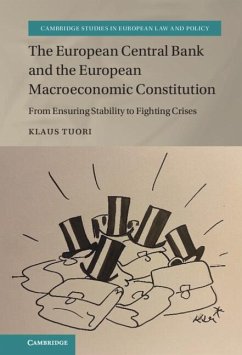
Cambridge Handbook of European Monetary, Economic and Financial Integration (eBook, PDF)
Versandkostenfrei!
Sofort per Download lieferbar
138,95 €
inkl. MwSt.
Weitere Ausgaben:

PAYBACK Punkte
69 °P sammeln!
Cambridge Handbook of European Monetary, Economic and Financial Integration (eBook, PDF)
Dieser Download kann aus rechtlichen Gründen nur mit Rechnungsadresse in A, B, BG, CY, CZ, D, DK, EW, E, FIN, F, GR, HR, H, IRL, I, LT, L, LR, M, NL, PL, P, R, S, SLO, SK ausgeliefert werden.













